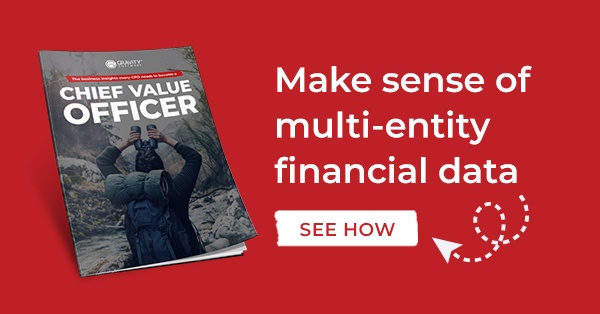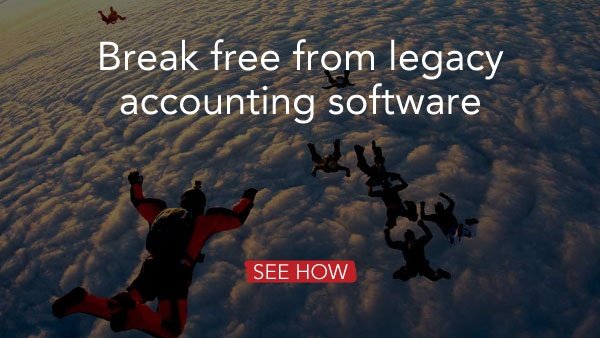6 accounting predictions for 2022

After the roller coaster that was 2020, trying to predict trends for 2021 resembled a game of roulette more than any scientific endeavor.
That said, a few of the accounting trends we predicted for 2021 did gain traction, and with 2022 on the horizon, others are emerging.
Here are six accounting trends that are likely to pick up speed in the coming year.
2022 accounting trends
Expansion of the finance role
Companies are increasingly defining the finance role much more broadly and looking to accounting finance professionals as strategic advisers.
"CFOs are gradually taking on the role of Chief Value Officers — they are becoming a pivotal constituent of a data-based business strategy and drivers of corporate added value,” said Dr. Marcus Gantzkow, Partner at Ernst & Young (EY) Germany in Digital Finance.
Specifically, finance teams are being expected to leverage data analytics to drive enterprise growth.
"Today, no company can afford to ignore the potential advantages of data analytics for business decision-making processes, for example regarding an improved profit margin or stronger customer loyalty," EY warns. "Ultimately, (the finance function) is in the unique position of being able to collect data from every area of the company as well as to process and present this data for management decisions.”
The Occupational Outlook Handbook reiterates the evolving expectations for the accounting field, saying it expects the analytical and advisory duties of accountants will become more prominent throughout the rest of the decade.
Digital transformation
Cloud-based systems, including cloud accounting software, have seen a rise in popularity in recent years.
But replacing one or two programs with cloud-based software isn’t enough for many companies. As 2022 approaches, the buzzword is digital transformation.
"Digital transformation is not a single event or an endgame,” EY Asia Pacific Digital Leader Will Duckworth wrote in an article. “It is an endlessly turning wheel of evolving technology.”
As remote work becomes more common, businesses have found value in being able to access their software systems and company information anytime and from anywhere.
"Investment in digital transformation has been a top priority for CFOs throughout the pandemic, as many kept digital investments safe from cost cuts, reallocating resources and even accelerating some investments," PwC notes in the CFO insights from its most recent Pulse Survey.
According to the survey, 68% of CFOs planned to invest in digital transformation over the next 12 months.
The prevalence of platforms
Greg Sarafin of EY notes that the platform economy is one of the major trends shaping digital transformation.
Solutions such as the Microsoft Power Platform allow companies to access a wide variety of content ranging from applications for supply chain management to invoicing and much more. Those applications can integrate with other solutions on the same platform, providing opportunities for process automation and other efficiencies.
Sarafin predicts companies will look toward utilizing platforms that already feature business content, allowing them to rapidly upgrade their technological capabilities without reinventing the wheel.
"Doing so helps organizations speed time to market, reduce custom code requirements and pay attention to their market strategy rather than construction and maintenance details," he notes.
Greater attention to data privacy and security
Data privacy is of growing concern as tech giants like Facebook are increasingly being held accountable for their use of consumer data. Consumers want to know who has what information about their internet activity, shopping habits, relationships, and interests, and how those entities are using it. And rules like the General Data Protection Regulation (GDPR) and the California Consumer Privacy Act (CCPA) require companies to take a closer look at their data privacy protections.
Data security goes hand in hand with data privacy. The FBI reported a 62% year-over-year increase in ransomware attacks in the first six months of 2021, and the average cost of a data breach rose to over $4 million.
Keeping up with cybersecurity best practices will be an even more important focus for accountants and business leaders in the coming year.
Doubling down in '22
A few accounting trends that were just beginning to reveal themselves as 2020 drew to a close.
A full year later, these trends show no signs of going away and have, in fact, become even more pronounced throughout 2021, including:
The normalization of remote work
During the COVID-19 pandemic, remote work became commonplace as many companies were forced to choose between setting employees up to work offsite and shuttering their businesses entirely.
But when pandemic-induced restrictions were lifted, many employees continued to work from home.
A survey published in March 2021 by Harvard Business School online showed 27% of employees hoped to work remotely full-time and 61% would like a hybrid model. Five months later, a PwC survey showed 19% of employees would like to work remotely.
Employers are listening. According to the August 2021 PwC survey, a full third of employers' plans for fall 2021 included a mix of in-person, hybrid, and remote work, with another 36% planning for an all-hybrid or hybrid/in-person model.
While it's taken some adjustment (36% of executives worry about workplace culture erosion), remote and hybrid work is one way for employers to offer the flexibility employees are looking for amid a tight labor market.
Increased automation
Increased automation is another trend borne more of necessity than of desire.
As 2020 drew to a close, automation helped some companies stay afloat when the ravages of the pandemic prevented them from attaining their full staffing levels. As 2021 nears its end, the trend is holding steady, but for different reasons: Quit rates are at an unprecedented level in the U.S. and thousands of positions are going unfilled even as businesses are hiring once again.
In sectors like retail distribution, automation looks like robots sorting items in warehouses. In the accounting world, finance departments are taking advantage of accounting automation software so they perform routine tasks like paying bills and allocating expenses more efficiently.
Gravity can help you keep up with accounting trends
From digital transformation to offering remote and hybrid work, continuing and emerging accounting trends focus on optimizing business practices and improving experiences for all stakeholders.
Gravity Software can help you stay ahead of the curve in all these areas.
Our cloud accounting software is built natively on the Microsoft Power Platform so you can:
- Manage advanced financial reporting with built-in business intelligence insights
- Further your digital transformation journey
- Protect consumer data via Microsoft's robust cybersecurity practices
- Allow for remote and hybrid work models
- Facilitate process automation with workflows you can easily build for specific tasks using Microsoft Power Automate
Be ready for anything the coming year has in store. Schedule an online demo today for a closer look.
Gravity Software
Better. Smarter. Accounting.



